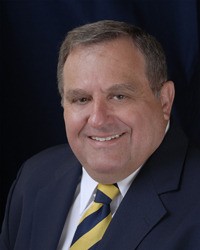Washington voters have made it more difficult for state lawmakers to hike taxes by requiring a two-thirds majority to do so.
The Legislature’s response? Increase fees, instead.
Gov. Chris Gregoire has ordered state agencies to cut their budgets and streamline their operations, saying, “State government cannot conduct business as usual.” But instead, some agencies want to offset their agency’s budget cuts with higher fees.
Fee hikes require only a simple majority vote in the Legislature. As a result, lawmakers are considering $350 million to $450 million in new fees to help plug the budget gap.
But that’s not what fees are for. By definition, fees are charged to offset the cost of a specific government program or service provided in return for that fee. Hiking fees to replace money from the general fund is a tax by any other name.
Calling a tax a fee doesn’t make it so. In fact, Lt. Gov. Brad Owen has ruled that, “Calling something a fee when there is no nexus between its collection and how it is to be spent does not make it a fee. Failing this, it is a tax, and a supermajority vote is required.”
The governor has called on state agencies to reform, and opportunities for reform abound.
For example, one of the major costs for Washington employers is the overlapping and often contradictory layers of federal, state and local regulations and permits covering the same issue. Even regulations among state agencies often overlap, forcing companies to file two or three sets of different paperwork or studies and pay multiple fees for the same thing.
But no one is addressing this problem in a meaningful way. Instead, some bureaucrats and legislators just want to increase the fees for these duplicative permits.
Case in point: streams in forests. Currently, an applicant must file separate permits with two different state agencies to install a fish-passable culvert on private timber land. The permit for the Department of Natural Resources is highly detailed and covers a broad range of protections. A similar permit for the Department of Fish and Wildlife is less specific, more general in scope.
The DNR permit covers everything required by the DFW permit and more. Do we really need both? Is it really necessary that property owners file two sets of paperwork, pay two fees and support two sets of public employees to accomplish the same thing?
Another example: the State Department of Ecology.
DOE wants to increase fees for processing water rights permits. But the agency currently has a backlog of some 7,000 pending applications, half of which have lain untouched for 10 to 20 years. Of that number, the agency staff has processed about 370 applications over the past two years. Essentially, DOE wants permit applicants to pay more money, but receive no change in service level for the additional cost.
That is not reform. Fee hikes are simply an attempt to avoid necessary reforms, backfill budget cuts and circumvent the two-thirds majority requirement to raise taxes.
Why should the general public care? Because added costs reduce jobs. And that’s the last thing we should do as our businesses struggle to emerge from the recession.
For example, HB 2008, sponsored by Rep. Hans Dunshee, D-Snohomish, would increase fees on the timber industry. Sierra Pacific Industries has already laid off 1,000 employees to cut costs to remain competitive and company officials say Dunshee’s bill would further add to the size of government and increase fees by 12 times. Representatives of private forest owner Merrill & Ring said it had also cut costs, and it would be nice “if the state government would do the same thing.”
Exactly.
The governor has raised expectations that state government will be transformed. It will be more efficient and streamlined. The permitting process will be easier for all of us to navigate, and we won’t have to weave our way through the regulatory maze and pay a toll at every turn in the road.
She has veto power and ought to insist the Legislature and state agencies comply with the intent of her transforming state government initiative.
Don Brunell is the president of the Association of Washington Business.
Talk to us
Please share your story tips by emailing editor@kentreporter.com.
To share your opinion for publication, submit a letter through our website https://www.kentreporter.com/submit-letter/. Include your name, address and daytime phone number. (We’ll only publish your name and hometown.) Please keep letters to 300 words or less.

